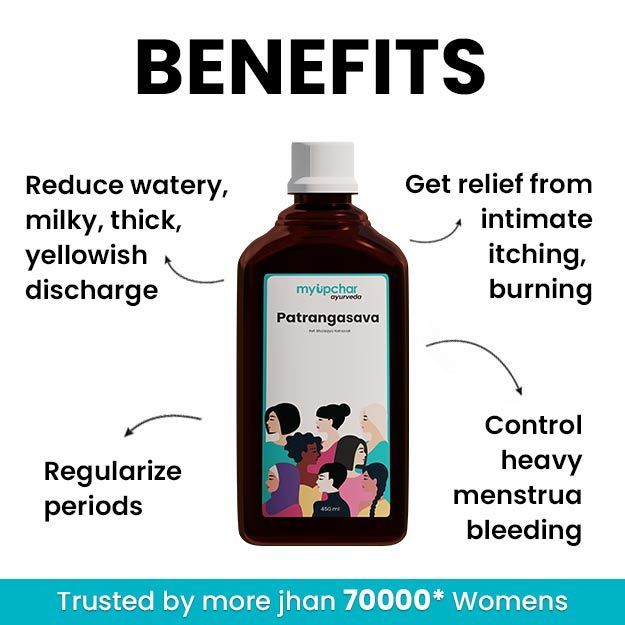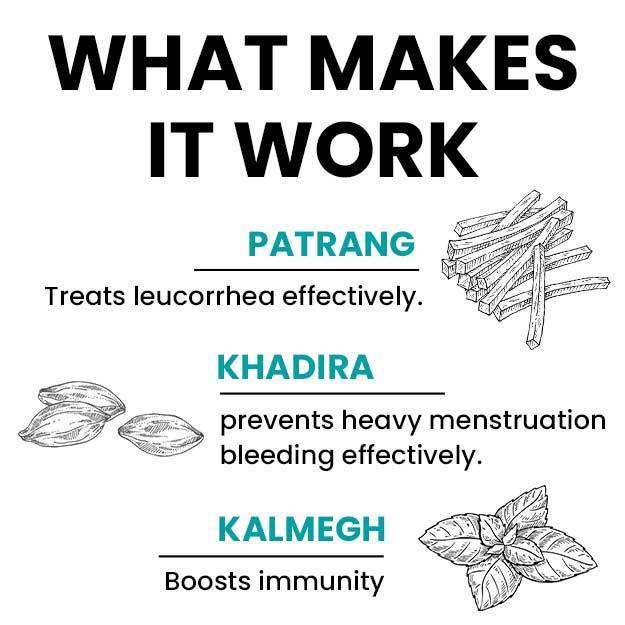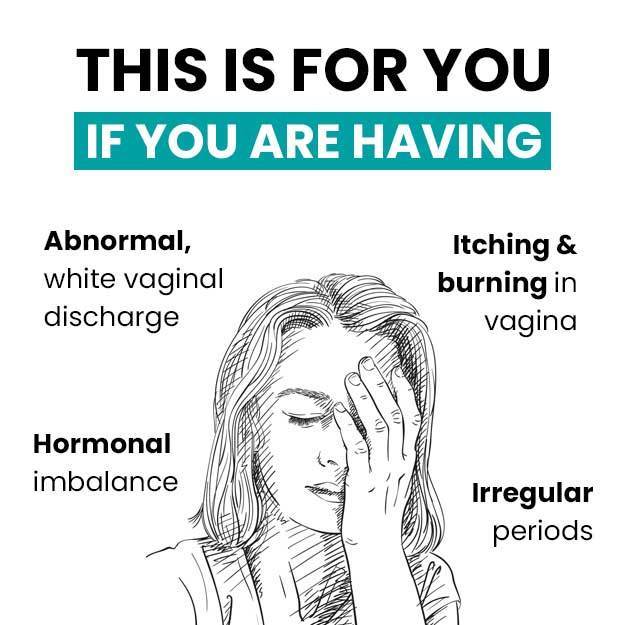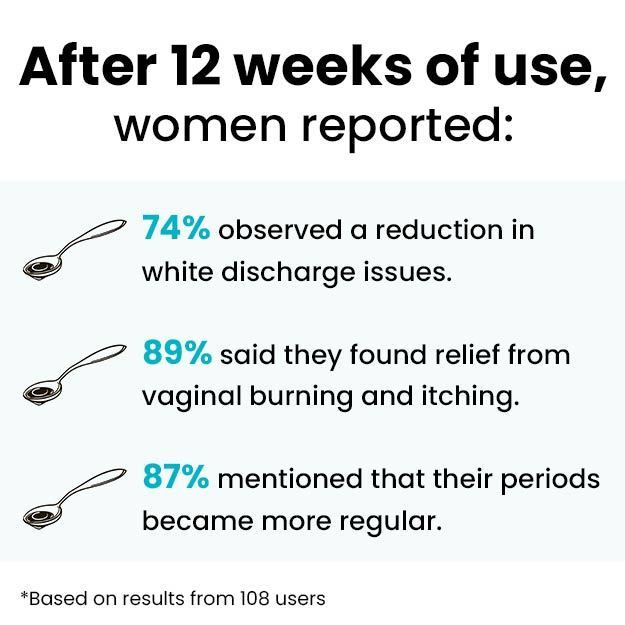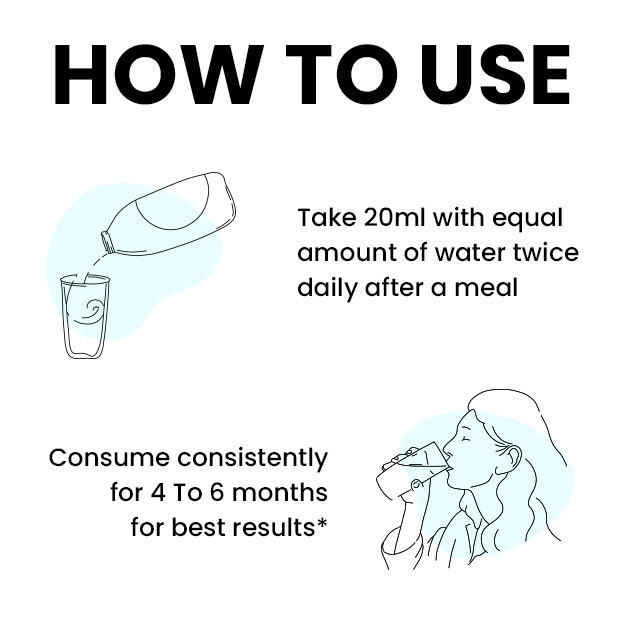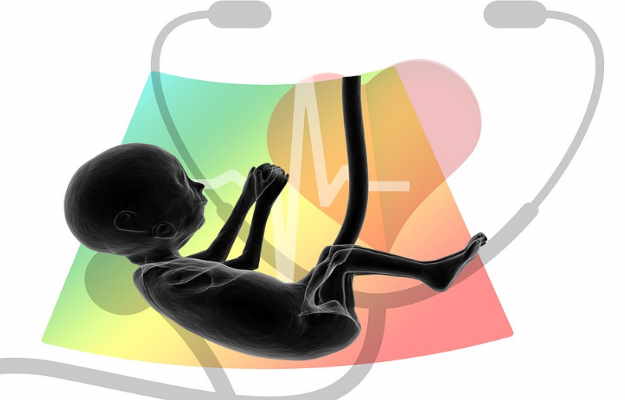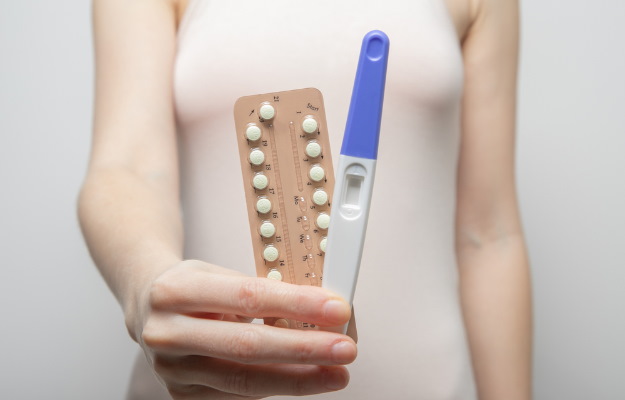Hey there, future parents! Can you even believe you've hit the seventh month of pregnancy already? Wow, you've officially stepped into your third trimester, and that means the countdown to meeting your little one is seriously on. Your belly's looking beautifully round now, and it's totally normal to feel a mix of excitement, anticipation, and maybe a few new sensations as your body gets ready for the big day.
This whole journey is packed with incredible changes for both you and your baby. In this complete guide, we're going to walk you through exactly what to expect during this really important month. We'll chat about the amazing things happening inside your womb, the common symptoms and body shifts you might experience, and all the crucial steps you can take with your diet, exercise, and getting ready for childbirth. Let's make sure you feel totally confident and prepared for this exciting final stage!
-
Body Changes and Symptoms at 7 Months
- Weight Gain and Growing Belly
- Stretch Marks and Dark Lines
- Swelling in Feet, Ankles, and Hands
- Aches and Pains: Back, Hips, and Legs
- More Frequent Urination and Heartburn
- Feeling Tired and Trouble Sleeping
- Shortness of Breath and Breast Changes
- Practice Contractions and Leaking Breasts
- Vaginal Discharge and Baby's Position
- Your Baby's Amazing Growth at 7 Months
- Healthy Eating: Your 7-Month Pregnancy Diet
- Safe Exercise at 7 Months Pregnant: Staying Active
- Your 7-Month Pregnancy Checklist: Care and Preparations
- Important Reminders and When to Call Your Doctor
- You've Got This!
Body Changes and Symptoms at 7 Months
At 7 months pregnant, your body is seriously doing some incredible work, quickly adapting and changing to grow your baby. You're definitely feeling very pregnant by now, and you might notice some familiar discomforts from your second trimester sticking around, plus a few brand-new feelings. Let's dive into the common signs and symptoms you could experience during this busy phase.
(Read More: Pubic Hair Removal: Safety Tips and Best Practices You Need)
Weight Gain and Growing Belly
One of the clearest signs you're 7 months pregnant is the significant weight gain and how your baby bump keeps getting bigger. By the end of your second trimester, you likely put on somewhere between 7 to 10 kilograms. As you go through this seventh month, you can expect to gain another 2 to 3 kilograms.
And this weight gain isn't just about you! It's super important for your baby's rapid growth and for building up your own energy reserves for labor and breastfeeding. Most of this extra weight is right there around your belly, but it also includes things like your increased blood volume, extra fluid, your growing uterus, the amniotic fluid, and the fat stores your body is diligently building up. Remember, every pregnancy is different, so your exact weight gain might vary, but this range gives you a good idea.
(Read More: Bye-Bye Lines: Must Try Home Remedies for Stretch Marks)
Stretch Marks and Dark Lines
As your body expands to make room for your growing baby, your skin's going through some pretty amazing changes too.
You might or might not see stretch marks pop up during this time. They can look like reddish-purple stripes at first, often fading to a silvery-white color after birth. You'll most commonly spot them on your stomach, but they can also show up on other areas that grow quickly during pregnancy, like your breasts, thighs, or butt. They happen because the collagen and elastin fibers in your skin stretch beyond their limit. While keeping your skin hydrated and using creams can help with elasticity, there's no guaranteed way to stop them completely, as your genetics play a big part.
Another noticeable skin change you might see is the linea nigra. This is that dark brown line that runs straight down your belly, usually from your pubic bone to your belly button. Hormonal changes during pregnancy increase melanin production, which causes it. The good news is, while you can't do much about it now, it will most likely fade away on its own after you give birth. So, no need to stress about this temporary stripe!
You might also notice some dark patches on your face, sometimes called melasma or the "mask of pregnancy." These are also caused by hormones and typically fade once your baby arrives.
(Read More: Best Time To Get Pregnant)
Swelling in Feet, Ankles, and Hands
As your pregnancy moves into the third trimester, you might find that your body feels a bit more swollen or "puffy." This mild swelling, or edema, is super common. It happens because your body is making more blood and fluids to support your growing baby. Plus, your body tissues get softer, making it easier for them to expand and make room for all that growth.
While swelling can be all over, you'll probably notice it most in your feet, ankles, and sometimes your fingers and face. This is partly due to changes in how your blood vessels work and the pressure from your growing uterus on the veins that bring blood back from your lower body.
To help handle the swelling, try these simple tips:
- Prop your feet up whenever you can, especially at the end of the day.
- Stay really well-hydrated by drinking lots of water.
- Avoid standing or sitting for super long periods. Make sure to take breaks and move around.
- Wear comfy shoes and skip tight clothes or jewelry that might squeeze you.
Important warning: While a little swelling is totally normal, sudden, severe swelling, especially if it comes with headaches, vision changes (like blurry vision or seeing spots), or bad upper belly pain, could be a sign of preeclampsia. This is a serious condition that needs immediate medical attention. If you experience these symptoms, get in touch with your healthcare provider right away.
(Read More: When to have intercourse to get pregnant)
Aches and Pains: Back, Hips, and Legs
With your belly growing and your center of gravity shifting, those aches and pains can really start to show up more.
- Abdominal, Back, Thigh, or Buttock Pain: This is really common because of the pressure your growing baby puts on your ligaments, muscles, and nerves. Your ligaments also get softer thanks to pregnancy hormones, which can add to the discomfort.
- Sciatica: You might feel a shooting pain that goes down your leg from your lower back or butt. This happens when your growing uterus puts pressure on the sciatic nerve.
- Leg Cramps: These can be super annoying, often hitting at night. They can be due to changes in blood circulation, tiredness, or even being a little dehydrated.
(Read More: How to get glowing skin: home remedies and skin care tips)
To find some relief:
- Do some gentle stretching and light, prenatal-approved yoga.
- Take warm baths (but not too hot!) to help your muscles relax.
- Use a maternity pillow for better sleep posture.
- Try to keep good posture throughout the day.
- Stay hydrated to help with those leg cramps.
Also, you might feel a bit sore in your buttocks, which is usually normal. But if that soreness is really bad and won't go away, it could be a symptom of hemorrhoids (also called piles), which are pretty common in pregnancy because of increased pressure and constipation. Eating more fiber and staying hydrated can help. If the pain is severe or you notice bleeding, definitely talk to your doctor.
(Read More: Ancient Beauty Secrets: Home Remedies for Glowing Skin)
More Frequent Urination and Heartburn
Those familiar pregnancy discomforts might still be hanging around, or even getting more intense.
- Frequent Urination: Your baby's getting big fast, and your uterus is expanding upwards, but it’s also pressing down harder on your bladder. That means more trips to the bathroom, day and night. While this is just a normal part of late pregnancy, if you're peeing much more often than usual, especially if you're also super thirsty, it could be a sign of gestational diabetes. Make sure to mention this to your doctor during your check-ups.
- Heartburn and Indigestion: These are still common culprits. Your growing uterus pushes up on your stomach, and pregnancy hormones relax the valve between your esophagus and stomach. This lets stomach acid come back up, causing that burning feeling. To ease heartburn: try eating smaller, more frequent meals; skip spicy, fatty, or acidic foods; don't lie down right after eating; and try propping your head up with pillows when you sleep.
(Read More: Postpartum Skincare: How to Rejuvenate Your Skin)
Feeling Tired and Trouble Sleeping
Even though you’re well into your pregnancy, fatigue can really hit hard again in the third trimester. Your body is working overtime to support your baby's rapid growth. On top of that, trouble sleeping is also super common. This can happen for a bunch of reasons: it's tough to find a comfy sleeping position with your growing belly, you're making those frequent bathroom trips, leg cramps might wake you, heartburn can be a bother, or even just all the excitement and worries about becoming a mom can keep you up.
To help you get better rest:
- Grab naps whenever you can during the day.
- Invest in a good maternity pillow to support your belly and back – it can be a lifesaver!
- Try sleeping on your side with a pillow between your knees.
- Create a relaxing bedtime routine to help you wind down.
- Deal with any pain or heartburn before you try to sleep.
- Stay hydrated during the day, but try to cut back on fluids a couple of hours before bed to lessen those nighttime bathroom dashes.
(Read More: Oligomenorrhea: causes, symptoms, prevention, treatment)
Shortness of Breath and Breast Changes
As your baby grows bigger, your uterus expands upwards, pressing against your diaphragm. This means there's less space for your lungs to fully expand, which can make you feel a little short of breath. It's pretty common and usually harmless, just remember to take things a bit slower and pause when you need a breather.
Your breasts will keep growing and feeling more tender this month. Your nipples might also continue to get darker. All these changes are just your body getting ready for breastfeeding – it's a truly remarkable process!
And don't be surprised if your belly button starts to pop out (if it hasn't already). This is simply due to the pressure from your expanding uterus pushing it outwards. Don't worry, it usually goes back to its normal spot after you give birth.
(Read More: Is Your Period Late? Here's What You Need to Know)
Practice Contractions and Leaking Breasts
Your body is incredibly smart, and by 7 months, it's starting to do some "practice runs" for labor.
- Braxton Hicks Contractions: You might feel these mild, irregular contractions, often called "practice contractions." They feel like your abdomen is tightening or hardening, then relaxing. They usually aren't painful, or just mildly uncomfortable, and they don't get stronger or closer together. Think of them as your uterus warming up and toning itself for the real deal. However, if these contractions become regular, painful, get closer together, or don't stop when you rest or hydrate, it's really important to call your doctor right away, as they could be a sign of preterm labor.
- Pre-milk/Colostrum Leaking: It's completely normal for small amounts of colostrum, that rich, yellowish "first milk," to leak from your breasts this month. Your body is just getting ready to nourish your baby from day one!
(Read More: Pregnancy Contractions: Signs, Stages, & Relief)
Vaginal Discharge and Baby's Position
You'll probably notice an increase in vaginal discharge during the third trimester. It should generally be thin, milky-white, and have a mild or no odor. This extra discharge helps protect against infection. However, if it's excessive, smells bad, looks green or yellow, or makes you itchy, you should definitely have your doctor check it out.
You might also get a feeling that your baby has "gone too low." While your baby will eventually drop further into your pelvis closer to your due date (this is called "lightening" or "engagement"), know that your baby is still perfectly safe and snug inside your uterus and won't "fall out." This feeling might just be due to the baby settling into a more consistent spot or simply increasing pressure on your pelvis.
(Read More: Period-Like Pain During Pregnancy: When to Worry)
Your Baby's Amazing Growth at 7 Months
While you're experiencing tons of changes, your little one inside is also super busy, transforming from a tiny being into a nearly ready-to-meet-the-world infant. The seventh month of pregnancy is all about remarkable rapid growth, development, and organization for the fetus. Most of the big developmental steps have already happened; now, your baby is focused on getting bigger, gaining weight, and fine-tuning all their systems.
(Read More: Melasma and Iron Deficiency)
Baby's Development Milestones
Your baby is truly a masterpiece in the making! Here’s a closer look at their amazing progress this month:
- Physical Features: Your baby now has clear eyelashes and eyebrows, and their head is starting to sprout a full head of hair. Their skin is still pinkish-red but is becoming less see-through. It’s also covered with a white, greasy substance called vernix caseosa, which protects their delicate skin from the drying effects of the amniotic fluid. Their eyelids can now open and close, and get this – they even have their own unique footprints and fingerprints by now!
- Organ Refinement: Even though most major organs were already working by the end of the second trimester, they continue to fine-tune and mature throughout this month and the ones to follow.
- Brain Development: This is a time of intense brain activity! The sulci and gyri (those grooves and ridges) in your baby's brain begin to deepen rapidly, which significantly increases the brain's surface area. This quick brain development is crucial for their thinking and processing abilities once they're outside.
- Skeletal Development: Bone growth points develop in several areas, which are vital for bones to expand after birth, helping them grow bigger.
- Meckel's Cartilage: Fun fact: a structure called Meckel's cartilage, which is used in some animals but not humans, typically disappears this month.
- Lung Maturation: This is very crucial. One of the most incredibly important developments this month is how much your baby's lungs continue to mature. They keep branching out more and more, and they develop specialized air sacs. Crucially, their lungs start making surfactant, a substance that helps those tiny air sacs inflate properly and keeps them from collapsing after birth. This development is so significant that if a baby is born prematurely during the seventh month, they have a much better chance of survival compared to babies born earlier. About 85% of infants born at this stage can survive with intensive care, though there's still a risk of disabilities in about 31% of those born due to other organ systems not being fully complete. This really shows how every single day in the womb makes a huge difference for your baby's development.
(Read More: How To Take Care During Pregnancy)
Baby's Size and Weight at 7 Months
By the end of this month, your baby is undergoing a huge growth spurt. They'll typically be about 10 to 13 inches (25 to 33 cm) long from head to heel. Even more impressively, your baby will likely weigh around 1 kilogram (or about 2.2 pounds) by the end of this month. This fast weight gain is mainly from putting on fat, which will help them keep warm and have energy after they're born. Your baby is definitely getting chubbier and cuter every day!
(Read More: Important Precautions During Pregnancy)
Feeling Your Baby Move: Kick Counts
As your baby keeps growing, the space inside your womb is getting a bit cozier, but that doesn't mean they're slowing down! In fact, you're probably feeling their movements more consistently and strongly now. You'll recognize distinct kicks, playful punches, rolling sensations, and even little hiccups, which feel like tiny, rhythmic twitches.
If you sit down quietly and really focus, you might feel at least three distinct movements in half an hour. This consistent movement is a wonderful sign that your baby is doing great and is very active. Many healthcare providers will suggest you start doing "kick counts" during your third trimester. This means setting aside time each day (usually when your baby is most active) to count their movements. Getting to know your baby's unique pattern is key. While there's no magic number, if you notice a significant decrease in movements, you should call your doctor right away.
Beyond just moving around, your baby is also becoming more aware of their surroundings. They can now hear and respond to sounds, so keep chatting, singing, and reading to them – they’re listening! They can also tell the difference between light and darkness. More movements are also a sign of healthy brain development, as your baby starts to explore their tiny world inside you.
(Read More: Ayurvedic Herbs and Practices to Boost Pregnancy Health)
Healthy Eating: Your 7-Month Pregnancy Diet
The seventh month marks the start of your third trimester, bringing you even closer to childbirth. Your body is growing faster, and your baby is putting on more and more weight, which means you need extra energy. To support all this amazing growth, it’s super important to really pay attention to your calorie intake and overall nutrition.
(Read More: Healthy Ways to Satisfy Food Cravings While Pregnant)
More Calories Are Needed
During your third trimester, your body's energy needs go up a lot. The recommended daily intake for women at this stage is about 2400 calories. This is quite a bit more than you might have eaten before pregnancy, but it's absolutely necessary to fuel both you and your baby's fast development. However, needing more calories doesn't mean you should just eat anything you want. It's crucial to focus on quality over quantity and make sure you're getting nutrient-rich foods.
(Read More: When to Start Including Ghee in Your Pregnancy Diet)
Key Nutrients for You and Baby
To support both you and your baby, it’s vital to stick to a balanced diet and make sure you include these specific, essential nutrients:
- Fruits and Vegetables: Make sure your plate is full of color! Eating lots of fresh fruits and veggies is top priority because they're packed with the vitamins, minerals, and fiber your body needs. These help with everything from preventing constipation to boosting your immune system.
- Proteins: Protein is fundamental for your baby's optimal growth and development. Make sure you get plenty of protein in your diet every day. Go for vegetarian sources like lentils, avocado, soy milk, nuts, and nut butter. Sometimes, you can also enjoy non-vegetarian foods such as eggs or chicken. But, it's important not to overdo it with protein, as too much can actually slow down fetal growth.
- Milk and Dairy: These are excellent sources of calcium. It’s crucial to pick pasteurized milk and dairy products. Raw milk can pose health risks during pregnancy because of potential bacteria like Listeria. If your milk isn't pasteurized, make sure to boil it before drinking.
- Iron: This is a really important nutrient during your seventh month. Your iron needs go way up because your baby needs to build up its own iron stores for the first few months after birth, directly taking from your supply. Iron also helps prevent anemia in you and supports your increased blood volume. Good food sources include green leafy vegetables like spinach, nuts, pulses (like lentils and beans), and whole grains. The World Health Organization (WHO) suggests a daily supplement of 30 to 60 mg of iron to prevent iron deficiency, fetal problems, and preterm birth. If you've been diagnosed with anemia during pregnancy, your doctor might prescribe an even higher daily dose, possibly up to 120 mg.
- Calcium: Make sure you're getting enough calcium for your baby's bone development and to keep your own bones strong. Dairy products, fortified plant milks, and dark leafy greens are all great sources.
- Folic Acid: If you've been taking folic acid supplements until now, you can chat with your doctor about whether it's okay to stop or if you should keep going, based on what you personally need.
(Read More: Garlic During Pregnancy: Health Benefits and Potential Risks)
Foods to Limit or Avoid
While you're focusing on healthy eating, it's just as important to know which foods might be risky during pregnancy:
- Raw or Undercooked Meats and Eggs: These can carry a risk of bacterial infections (like Listeria or Salmonella) or parasites that can harm your baby. This includes cold processed meats like pepperoni, salami, hot dogs, and any raw or undercooked poultry, meat, or eggs. Always make sure meats are cooked all the way through, with no pink left, and eggs are fully cooked.
- Certain Fish: While fish is great for omega-3 fatty acids, some types should be limited or avoided because of high mercury levels. Limit how much fish like tuna (especially albacore) you eat, and avoid raw fish like sushi unless you're absolutely sure about how it was prepared and where it came from, and your doctor gives you the green light.
- Unpasteurized Products: Besides milk, be careful with unpasteurized soft cheeses (like brie, feta, blue cheese, camembert) unless they clearly say they were made with pasteurized milk.
- Excess Caffeine and Herbal Teas: Keep your coffee intake moderate (generally advised under 200mg/day). And be sure to discuss any herbal teas you drink with your doctor, as some might not be safe during pregnancy.
(Read More: Pain during Pregnancy symptoms, causes)
Tips for Digestion Issues
If you're dealing with common discomforts like constipation or bloating, your diet can actually help a lot. Make sure to include more dietary fibers from fruits, vegetables, and whole grains. Cut down on your salt consumption to help with bloating and swelling. Eating smaller, more frequent meals throughout the day can also really help your digestion and lessen heartburn.
Lastly, and this can't be stressed enough: drink more water! Staying really well-hydrated is super important for digesting fibers, easing digestive problems, helping to keep your skin elastic (which might help with stretch marks), and keeping your energy levels up during this demanding month.
(Read More: How to Take Care of a Woman After Delivery)
Safe Exercise at 7 Months Pregnant: Staying Active
Staying physically active during your seventh month is highly recommended and incredibly beneficial for both you and your baby. It can help you manage your weight, boost your mood, and even get your body ready for labor.
Exercise Guidelines
The general recommendation for pregnant women in their third trimester is to aim for at least 150 minutes of moderate-intensity exercise each week. You can easily break this down into smaller chunks, like half an hour of walking on 5 days of the week. The main things are to be consistent and to listen to your body.
(Read More: The Benefits of Eating Dry Fruits During Pregnancy)
Safe Exercise Types and Precautions
When it comes to exercise, safety is key. Stick to light, low-impact activities. If you can, work with a prenatal fitness expert, or just do simple exercises at home.
-
Walking: This is a fantastic choice for most pregnant women. It's easy on your joints, gently raises your heart rate, and you can do it almost anywhere. Just make sure you wear comfortable, supportive shoes, and absolutely do not wear heels!
-
Swimming and Water Aerobics: The feeling of weightlessness in the water is amazing for taking pressure off your joints during pregnancy. Water activities are really comfortable and great for a full-body workout.
-
Prenatal Yoga and Pilates: These focus on flexibility, strength, and breathing techniques, which can be super valuable for labor. Just make sure the instructor is certified in prenatal fitness.
-
Light Home Exercises: Simple stretches, gentle squats, and arm exercises are all things you can do at home.
(Read More: Pregnancy Workouts for Normal Delivery)
Important Precautions
- Listen to your body: If something hurts or feels uncomfortable, stop right away.
- Avoid overheating: Stay hydrated and exercise in places that are well-ventilated.
- Avoid high-impact activities, contact sports, or anything where you could fall.
- Limit lying flat on your back: After your first trimester, this position can press on a major blood vessel (the vena cava), which can reduce blood flow to your baby. Try side-lying or reclined positions instead.
(Read More: From Mood Boosts to Labor Prep)
Benefits of Staying Active
Beyond just feeling good, regular exercise at 7 months pregnant offers some great health benefits:
- It helps you manage weight gain, which can lower risks like gestational diabetes or pregnancy hypertension.
- It can boost your mood and energy levels.
- It can even improve your sleep.
- Staying fit can build your stamina for labor.
(Read More: Avoid these habits to ensure a safe and healthy pregnancy)
Pelvic Floor Exercises
Make sure to include pelvic floor exercises (Kegels). These are incredibly important for strengthening the muscles that support your bladder, uterus, and bowels. Strong pelvic floor muscles can help prevent urinary leaks during and after pregnancy, and they can also play a role in making childbirth go a bit smoother. Ask your doctor or a physiotherapist how to do them correctly.
Your 7-Month Pregnancy Checklist: Care and Preparations
As you get closer to the finish line, there’s a lot to think about beyond just the physical changes. This month is a perfect time to start organizing, planning, and really prioritizing your well-being.
(Read More: High-Risk Pregnancy)
Doctor Appointments and Health Monitoring
Your regular prenatal check-ups are more important than ever now that you're nearing your due date. Make sure you don't miss any of your scheduled appointments with your doctor. These visits are vital for keeping an eye on your health, your baby's growth and development, and for catching any potential problems early.
During these visits, it's crucial to tell your doctor about any unusual symptoms you're experiencing. While we've talked about many common discomforts, some symptoms definitely need immediate medical attention. Remember to contact your healthcare provider right away if you notice:
- Sudden or severe swelling in your hands, face, or feet.
- Severe abdominal pain that doesn't go away.
- Excessive or unusual vaginal discharge.
- A significant decrease in your baby's movements.
- Any other symptom that worries you or feels off.
Always take your prescribed medicines exactly as your doctor tells you, and never take any unprescribed medications or supplements without talking to them first.
(Read More: Every Mother Should Know : Pregnancy Problems and Solutions)
Key Vaccinations
Your seventh month is a great time to get certain vaccines that protect both you and your baby:
- Whooping Cough (Tdap) Vaccine: If you haven't had this vaccine, now's the perfect time to get your Tdap shot. It not only protects you but also passes antibodies to your baby through the placenta. This gives your newborn crucial protection during their first few vulnerable weeks before they can get their own shots.
- Flu (Influenza) Shot: The flu vaccine is highly recommended during pregnancy, especially if it's flu season. It helps protect you from getting really sick, which can be more serious when you're pregnant. Importantly, it also offers some protection to your baby after birth, helping to fight off respiratory infections like pneumonia.
Chat with your doctor about these vaccinations to make sure you're up-to-date and protected.
(Read More: Are Cold Drinks Harmful During Pregnancy?)
Getting Ready for Baby's Arrival
Now's a good time to start getting ready for your baby's grand entrance:
- Childbirth Classes: If you haven't already, think about taking a childbirth class. These classes are super helpful for understanding the labor process, different pain management options, breathing techniques, and what to expect during delivery and right after birth. Many also cover basic newborn care.
- Nursery Prep: It’s a great time to finish up your nursery plans. This might mean setting up the crib, organizing baby clothes by size, and arranging changing tables or feeding spots. Getting these bigger tasks done now can help you feel more prepared and less stressed as your due date gets closer.
- Hospital Bag: Start thinking about and even packing your hospital bag for yourself and for the baby. Having it ready to go by the end of this month or early next will give you real peace of mind. Don't forget essentials like comfy clothes, toiletries, a going-home outfit for the baby, and most importantly, make sure your car seat is installed correctly in your car!
- Maternity Wear: Keep investing in comfortable, non-restrictive clothes as your body continues to grow. Avoid tight outfits that could cause discomfort or swelling.
(Read More: How many weeks is it safe to give birth?)
Self-Care and Emotional Well-being
Amidst all the physical changes and preparations, don't forget to take care of your emotional and mental health too:
- Rest: You're working incredibly hard nurturing a human being. Seriously, prioritize naps and rest whenever you can. Naps are your best friend, and don't feel guilty about taking them!
- Mindfulness: Try relaxation techniques like deep breathing exercises or meditation for stress relief. These can be very helpful for managing any discomforts and mentally preparing for labor.
- Talk to Your Support System: Share how you're feeling – your excitements, your anxieties – with your partner, trusted friends, or family members. Having a strong support system is invaluable right now.
- Sex During Pregnancy: Generally, sex is safe during your seventh month unless your doctor advises otherwise due to specific complications. You might just need to find more comfortable positions; try to avoid positions that put direct pressure on your belly (like your partner on top).
(Read More: Benefits of Eating Chocolate During Pregnancy)
Understanding Your Rights and Leave
Now's a good time to learn about your maternity rights at work and start planning your maternity leave. Understanding your company's policies, local laws, and any benefits you're entitled to can really help reduce stress as your due date approaches.
Important Reminders and When to Call Your Doctor
As you move through your seventh month, remember that every pregnancy journey is unique. Try not to compare your experience to others you read about or hear from friends. Your focus should be on what feels right and healthy for you and your baby.
Your healthcare provider is always your best resource. If you notice any of the following symptoms, or if anything just doesn't feel right or causes you concern, do not hesitate to contact your doctor immediately:
- Sudden or severe swelling in your hands, face, or feet.
- Severe abdominal pain, especially if it doesn't ease with rest.
- Excessive or unusual vaginal discharge.
- A significant decrease or change in your baby's usual movement patterns.
- Any other symptom that causes you worry or concern.
Your peace of mind is priceless, and it's always better to get things checked out than to worry.
(Read More: What are the best sleeping positions during pregnancy)
You've Got This!
You've truly come so far on this incredible pregnancy journey, and the finish line is now brightly in sight. Your seventh month is a time of significant growth for your baby and continued, powerful transformations for you. It's a period filled with final preparations, growing excitement, and a deep, profound anticipation of motherhood.
Remember to be kind to yourself, listen closely to what your body needs, and don't hesitate to lean on your support system and your trusted healthcare team. You're doing an absolutely amazing job, nurturing a new life and getting so incredibly close to that first magical meeting. Embrace these precious, fleeting weeks, cherish every little movement, and look forward to the beautiful moment when you finally hold your baby in your arms. You've got this, mama!
References
- Rosén L et al. Mechanisms for edema formation in normal pregnancy and preeclampsia evaluated by skin capillary dynamics. Int J Microcirc Clin Exp. 1990 Aug;9(3):257-66. PMID: 2394547
- American Pregnancy Association. [Internet]; Pregnancy Line – Linea Nigra.
- Office on Women's Health [Internet] U.S. Department of Health and Human Services; Stages of pregnancy.
- MedlinePlus Medical Encyclopedia: US National Library of Medicine; Fetal development
- South Dakota Department of Health. FETAL GROWTH AND DEVELOPMENT. [Internet]
- World Health Organization [Internet]. Geneva (SUI): World Health Organization; Daily iron and folic acid supplementation during pregnancy.
- InformedHealth.org [Internet]. Cologne, Germany: Institute for Quality and Efficiency in Health Care (IQWiG); 2006-. Pregnancy and birth: Weight gain in pregnancy. 2009 Jun 17 [Updated 2018 Mar 22].
- National Health Service [Internet]. UK; Week 29 – your third trimester.





































